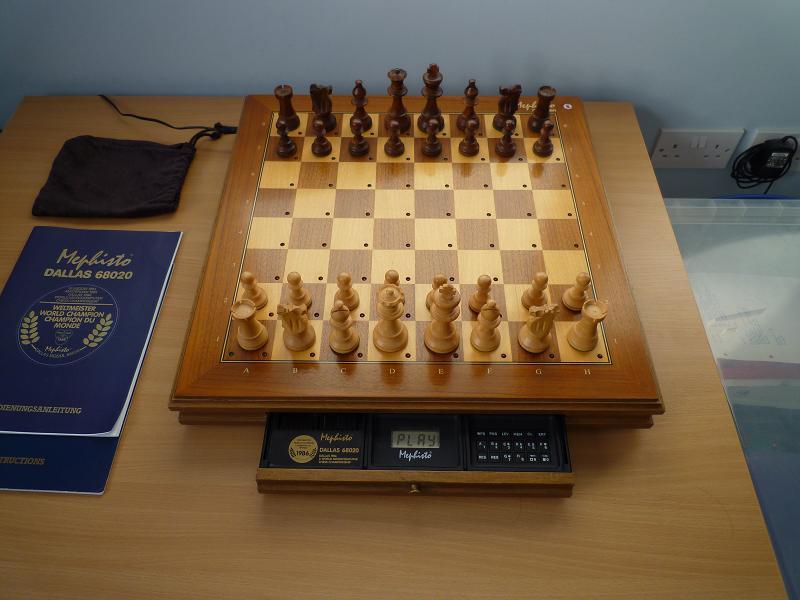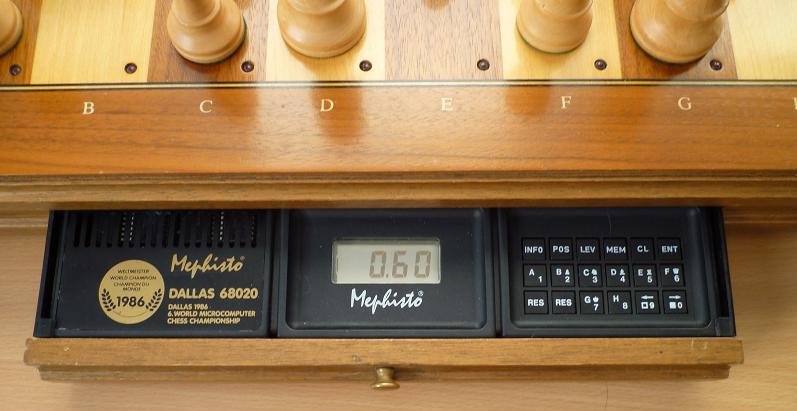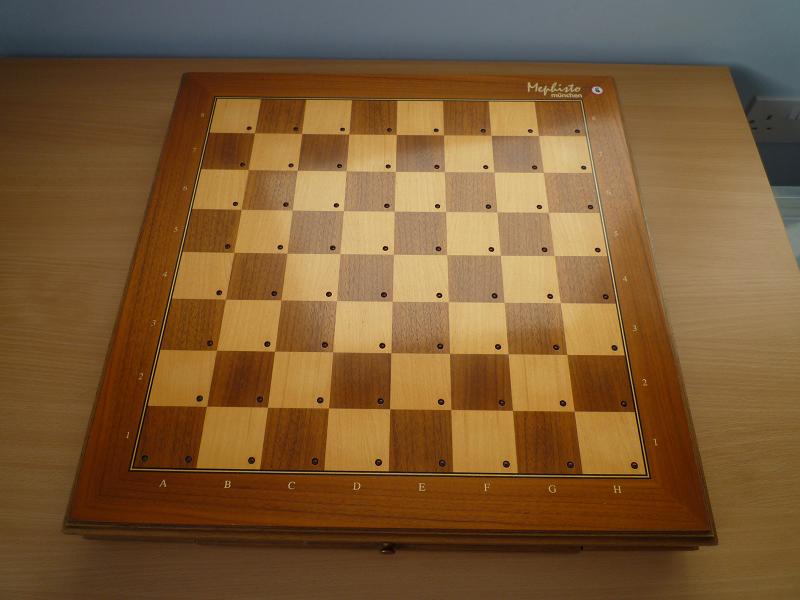|
Richard Lang’s World Championship Amsterdam program was a considerable leap forward in dedicated chess computer playing strength. For those who could afford £1000 (including Exclusive S board) Amsterdam modules represented state of the art at the end of 1985 and through 1986.
The World Microcomputer Chess Championship was next held in Dallas, USA at the beginning of November 1986. For that event Lang improved his program to defend better against passed pawns and to attack more aggressively on the King-side. The program also had an improved and extended opening book and improved pawn formation knowledge. Fidelity ran Mephisto closer in Dallas than it had at Amsterdam. The combined score between the three machines from each manufacturer was 5 1/2 to 3 1/2 in Mephisto’s favour, with Mephistos finishing 1st, 3rd and 5th in the tournament. Both manufacturers used 32 bit 68020 processors, the Mephistos running at 30 MHz.
‘Dallas’ modules using cheaper 16 bit 68000 processors clocked at 12 MHz were released for sale to the public straightaway. These proved to be 25-30 Elo stronger than the Amsterdam program and had an upgrade price of around £150.
68020 modules, or as they were known at the time ‘Super Dallas’ followed soon afterwards. These, running at 14 MHz proved to be considerably stronger again. Currently Selective Search has Dallas 68020 at 2033 Elo, Dallas 68000 at 1974 Elo and Amsterdam at 1946 Elo. Super Dallas was the first 32 bit technology to be used in a commercial chess computer. Expensive hardware for the time.
With its dominant position now firmly established Mephisto priced it’s World Championship 68020 modules at 4,500DM (equivalent to £4000 at 2013 values). This high price and the fact that Dallas was superceded by Roma a year later meant that comparatively few Dallas 68020s were sold. Hence their rarity today.
|


